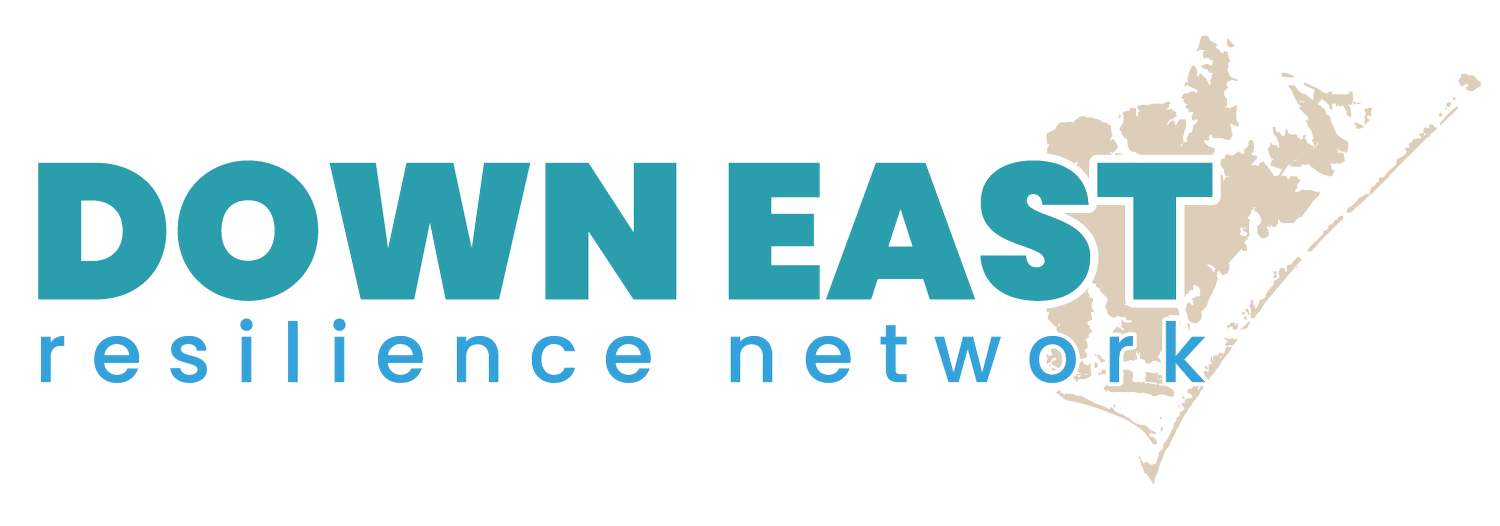Navigating
Insurance
Insurance is a crucial component of protecting your home and personal property in coastal North Carolina. While basic homeowner's insurance provides important coverage, residents often need additional policies to guard against specific environmental risks like flooding, wind, and hail damage. Understanding what different insurance policies cover, how to file claims, and where to find assistance is essential for homeowners and renters alike.
TYPES OF INSURANCE
Homeowners Insurance
Basic Homeowners insurance is sold as a separate package policy which can be needed when owning a home to protect from anything that may cause damage to your home. The homeowners policy can cover dwelling, other structures, personal property, loss of use, personal liability, and/or medical payments. Typically, losses from floods, earthquakes, landslides, mudslides, wind, or hail are not included under a basic homeowners insurance policy. However, there can be separate policies purchased to cover damage and losses caused by those environmental threats.
Wind
and Hail
According to the North Carolina Department of Insurance, you may have to purchase separate wind and hail insurance for your home as it may be excluded from your basic homeowner’s insurance depending on where you live.
If you are obtaining a separate policy for wind and hail insurance, most of the time you would be looking into a policy that is written by the North Carolina Insurance Underwriting Association (NCIUA). This association provides essential property insurance to those who live in North Carolina coastal regions. To be eligible for wind and hail insurance through this association, the property owner needs to have a primary policy by a North Carolina provider that currently does not include wind.
Renters Insurance
If you are renting a property, your landlord’s insurance does not cover your personal property, according to the North Carolina Department of Insurance. Renters insurance protects your property from damage or loss while renting a home, apartment, or condominium. Renters insurance can cover personal property, loss of use, personal liability, and/or medical payments to others. Additionally, The NCDOI has created a consumer guide to renters insurance.
Flood
Insurance
Flood insurance is a separate policy from a homeowners or renters insurance policy. It is recommended to purchase flood insurance if your home is located in an area with a higher likelihood of experiencing flooding, such as in a flood plain, near a river, or near the coast. Even if you do not live in one of these areas, you can still purchase a flood insurance policy. The federal government offers flood insurance through the National Flood Insurance Program (NFIP), and homeowners with federally-backed mortgages may be required to have flood insurance if their home is located in a floodplain. There is typically a 30 day waiting period for coverage to become effective, with some exceptions. The North Carolina Department of Insurance website as well as the National Flood Insurance Program has information about flood insurance. The Carteret County Flood Information website includes specific information about flooding in Carteret County and insurance.
Is my Home at Risk of Flooding?
To see your home’s risk for flooding, you can go to https://flood.nc.gov/ and type in your address. This website provides an overall assessment of your property’s flood risk, the flood zone your home is located in (if applicable), and additional links to resources to help protect your property from flood risk.
National Flood Insurance Program
Preparing for a Flood and the Claims Process
The National Flood Insurance Program website provides many details about buying a flood insurance policy, preparing for upcoming floods, etc. Before a flood hits your home, it is important to know your flood risk, take household inventory, and properly store important documents. There is information available about when a flood happens and damages your home, what the next steps are when filing a claim:
Start a claim: Report any losses to your insurance carrier.
Prepare for your inspection: Take photos and videos of your damage before the insurance adjuster comes to inspect your property. Also, be sure that any items that could be associated with any health risk are disposed of.
Work with your adjuster: The insurance adjuster will show you proper identification and answer any questions you may have about your claim. They will also inspect your property for damages and submit a recommendation to the insurer.
Document your loss and receive payment: You will need to review the estimate provided by the adjuster and sign a proof of loss form. Ask your insurance adjuster any questions about your policy and deadlines you might need to meet with your insurance policy.
Make repairs: Make sure that any contractor hired for repairs is licensed, bonded, and insured.
Understanding claim payments: It may take four to eight weeks for a claim to be paid. If your insurance company denies any or all of your claim, you can appeal the denial within 60 days after the date of the denial letter.
Storm Preparation & Insurance
The Farm Bureau Insurance Group has compiled a list of things to consider before and after a storm hits your home. They recommend that before the storm, prepare with your agent, prepare at home for any damage, and protect your property the best you can. Be sure to review your insurance policy to understand what is and what is not currently covered. After the storm, prepare for the adjuster to come by creating a list of belongings, take detailed pictures before you start making any repairs, and clean up any debris that may be in or around your home.
References:
https://www.ncdoi.gov/contact/regional-offices-and-directors
https://www.ncdoi.gov/consumers/homeowners-insurance/basic-homeowners-insurance
https://www.ncdoi.gov/consumers/homeowners-insurance/renters
https://www.ncdoi.gov/documents/consumer/publications/consumer-guide-renters-insurance
https://www.ncdoi.gov/consumers/homeowners-insurance/flood-insurance
https://www.carteretcountync.gov/244/Carteret-County-Flood-Information
https://www.ncdoi.gov/consumers/homeowners-insurance/windstorm-and-hail




